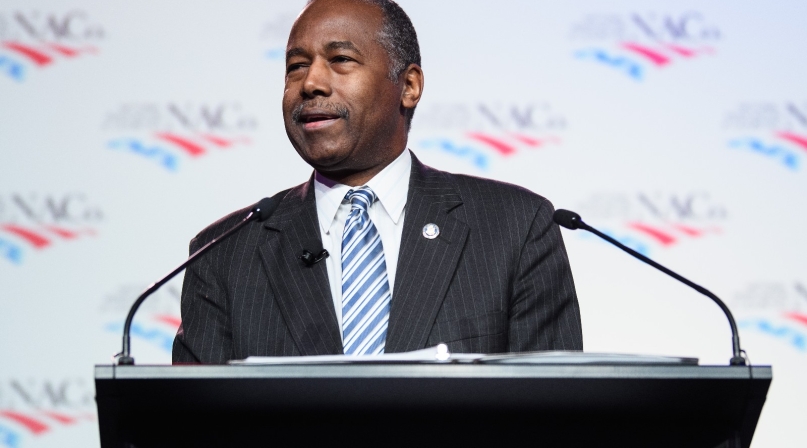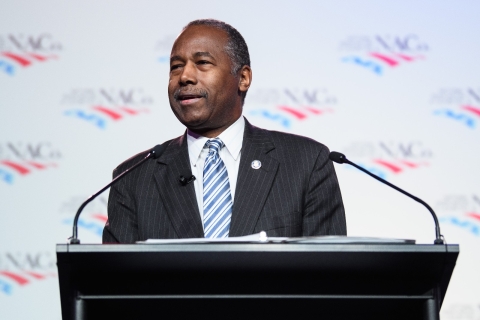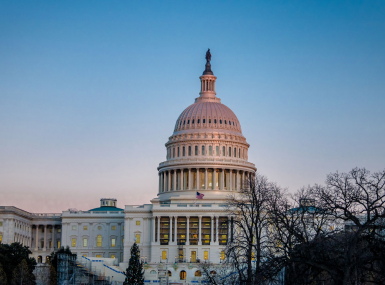HUD Secretary talks cutting regulations to create affordable housing
Author
Upcoming Events
Related News

The U.S. Department of Housing and Urban Development (HUD) is tackling housing affordability challenges by taking actions on key regulations, HUD Secretary Ben Carson told county officials Monday during the General Session at NACo’s 2020 Legislative Conference.
Carson said one of the biggest challenges in America is affordable housing, adding that HUD is working with local leaders to provide counties with housing affordability options.
“It’s not just about cutting the regulations, it’s about cutting costs so that homes can become affordable,” he said.
Carson chairs the Council on Eliminating Regulatory Barriers to Affordable Housing, which President Trump established through an executive order last summer. The multi-agency council engages with state, local and tribal leaders to examine obstacles impeding the production of homes.
“Instead of replacing one regulation with a better regulation, we just keep piling regulation on top of regulation,” he said.
Carson said NACo’s affordable housing toolkit helps explain housing affordability challenges and prioritize partnerships.
“Our job at HUD is not to proclaim on high what county representatives do, but rather to let local leaders lead,” he said.
NACo members have participated on the federal level on housing issues at White House councils and roundtable discussions, he noted.
“On the whole, federalism has local leaders fundamentally set the height of regulatory barriers of affordable housing,” he said.
In 2018, HUD reopened the Affirmatively Furthering Fair Housing (AFFH) rule to encourage affordable housing development.
“It’s local leaders who know their own communities much better than Washington bureaucrats and our new rule reflects that,” he said.
In an interview with County News prior to his speech, Carson said county officials are in the perfect position to tackle regulatory barriers, which are some of the biggest hurdles to affordable housing.
“When you look at federal, state and local regulations, local are about 80 percent of the barriers that prevent us from being able to create affordable housing,” he said.
He said one of the biggest challenges to affordable housing is NIMBYism, an acronym for “not in my backyard.”
“A lot of people think the government still comes in and builds these gigantic multi-family structures with little forethought or afterthought, which of course rapidly deteriorates and becomes the latest crime and poverty,” he said. “Well, government doesn’t do that anymore. Now we’re talking about public-private partnerships, mixed income developments, much smaller and consistent with the character of the neighborhood.”
Carson said HUD is fostering partnerships with community leaders, business leaders, public housing advocates, investors, builders, state and federal officials to benefit the communities across the country in need of affordable housing solutions.
“Each county official has a sphere of influence and it’s much greater than they think,” he said. “It can be used to really move counties in the right direction.”

Attachments
Related News

County Countdown – Nov. 4, 2025
Every other week, NACo's County Countdown reviews top federal policy advocacy items with an eye towards counties and the intergovernmental partnership.

